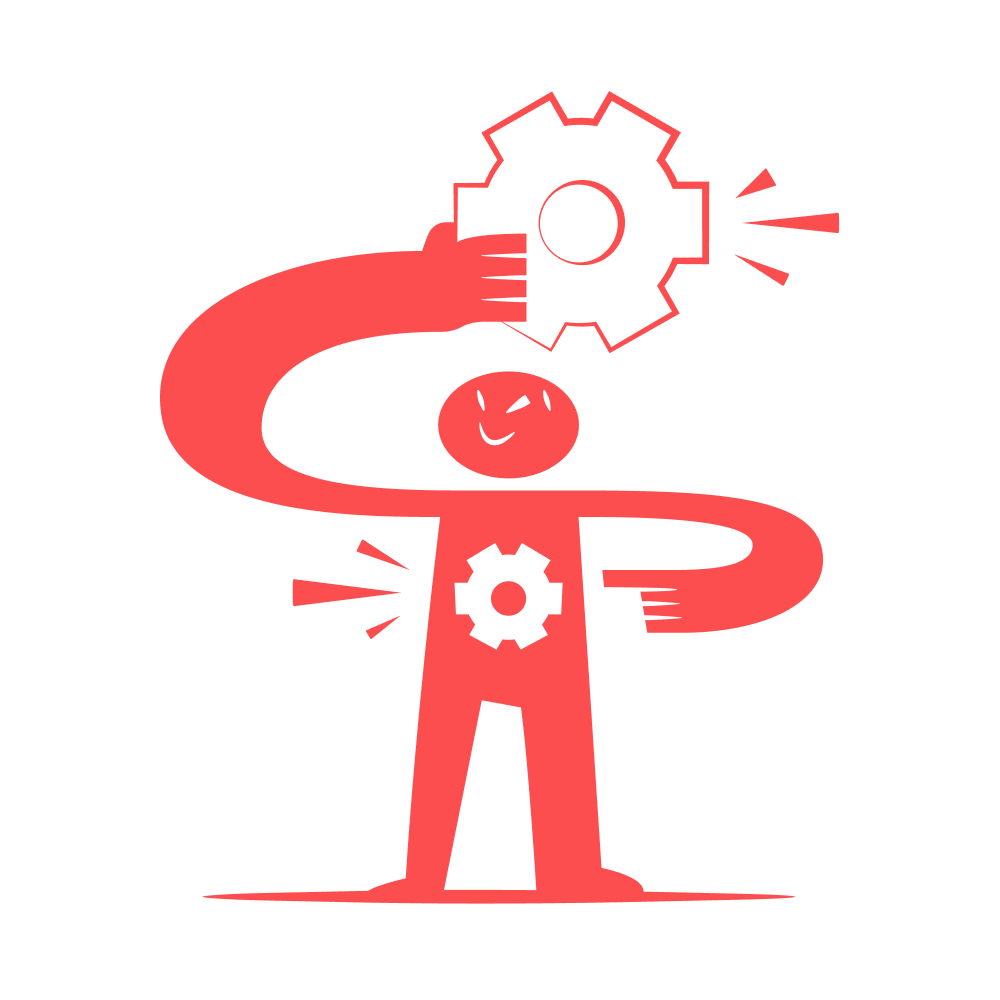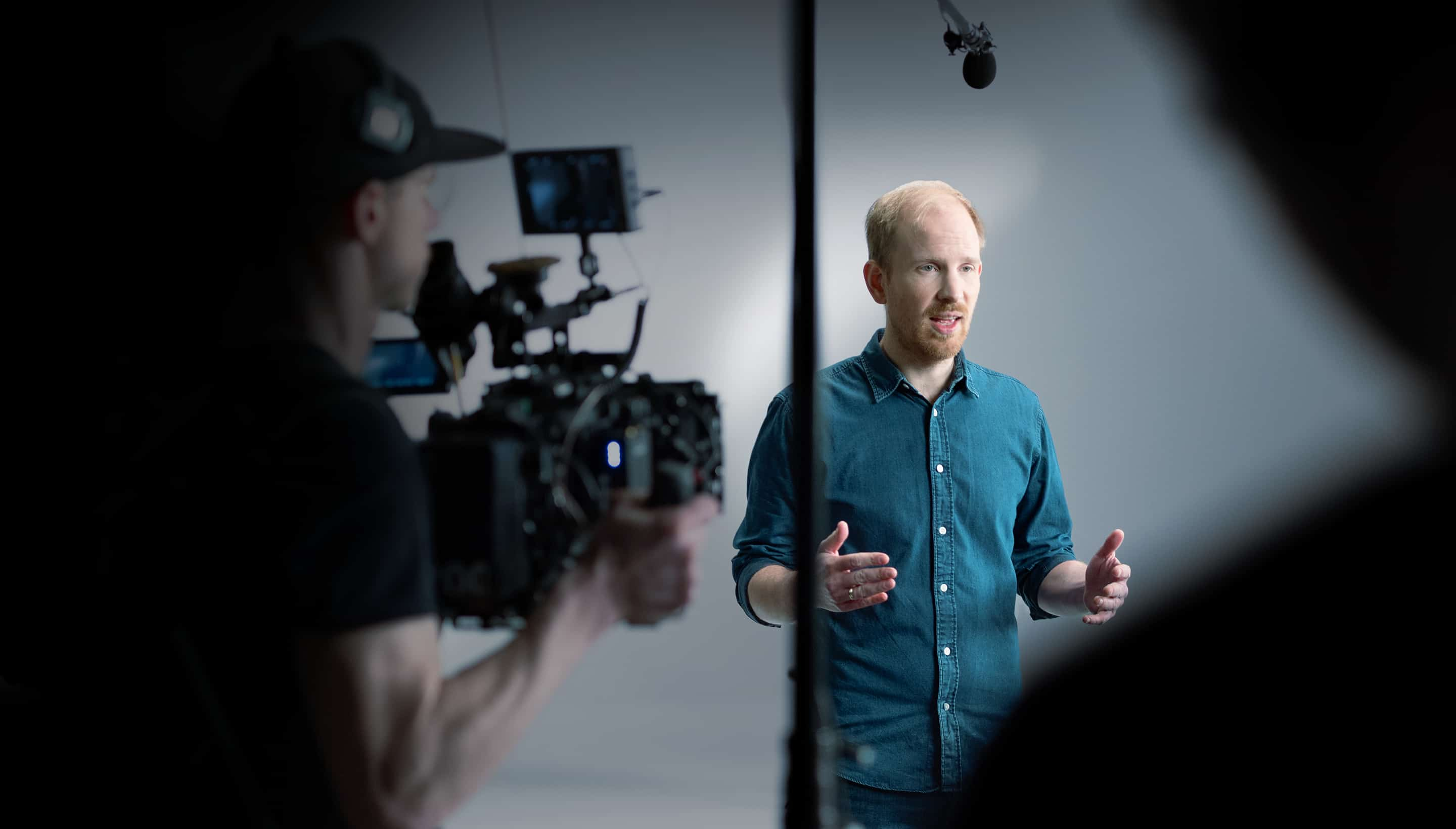No, You Don’t Have to Quit Your Job. Here Are 5 Ways You Can Have an Impact.
Illustrations by Leon Postma of Momkai
Moral ambition is not about a job or a position, but about understanding the best way you can leverage your abilities to affect change. In our Moral Ambition Circle program, we guide you through five promising ways to have a meaningful impact.
The question we get asked most often is: Which impactful jobs should I be looking for?
We struggle to answer this, because in reality, we know: there are no impactful jobs, just impactful people in impactful places.
This is something incredibly important to understand if you want to apply your moral ambition and start making the world a better place. The job you are in is only one half of the equation; the other half is what you do in that role.
That’s why at The School for Moral Ambition, we don’t just blindly steer people toward certain jobs or positions; we help them formulate how they are going to drive change from within that position — their own personal ‘Theory of Change’.
In our Moral Ambition Circle program, participants go through the process of formulating their own theory of change, which is basically a plan for identifying where and how you can create meaningful impact. The program guides you to the next step, culminating in a session where you commit to taking action in alignment with your theory of change.
Read on to discover the five pathways we broadly see as promising options for people looking to apply their moral ambition.
Learn more: What is the Moral Ambition Circle program?

1. Switching careers
While a new job may not always be the best option, switching careers remains one of the most significant decisions you can make when it comes to your impact.
When it comes to career choices, most people tend to weigh some combination of salary, personal preferences, and meaningful impact — typically in that order. But what if you could flip that model on its head? If you’re in a position to do so, swimming against the current and prioritizing impact will allow you to make a far greater difference than most of your peers.
The reality is that many impactful organizations struggle to attract top talent. This isn’t because there’s no interest in working for them; it’s because these organizations typically have fewer open positions and cannot offer the same salaries that more traditional, less impact-driven companies can.
A good rule of thumb is this: the more a skill is valued in the market, the harder it is to attract it in a nonprofit setting. This is especially true in areas like IT, leadership and management, marketing, and strategy. If you are a talented professional in one of these fields and you can take a pay cut, the opportunities are there for you.
Let’s say you're considering making the leap. How do you decide which organization to join? What makes an organization impactful? And how can you assess whether their work truly matters in the grand scheme of things?
Arguably, the most important factor is the problem the organization is trying to solve. You can evaluate the significance of this issue using the ‘triple-S’ framework: Is the problem sizable? Is it solvable? Is it sorely overlooked?
Once you have a sense of the scale and urgency of the problem, you can assess whether the organization's solution feels promising. This is where the organization’s theory of change comes into play — does it make sense? For this, you may want to rely on evaluations from external experts, particularly in the case of NGOs.
Read: What world problem do you want to tackle? Look for one that's sizable, solvable, and sorely overlooked

2. Volunteering
As anyone in the non-profit sector will tell you, having good volunteers is crucial to an organization’s impact.
Particularly in the NGO space, many organizations are underfunded and can only achieve their mission thanks to the dedication of volunteers. This makes volunteering especially impactful from a VORP (Value Over Replacement Player) perspective. While most paid positions attract applicants, volunteer work is often the work that wouldn’t get done unless someone steps up to offer their time and skills.
Read: Want to know the real impact of your work? Start thinking like a baseball analyst
So, how do you find the right volunteer role for you? There are a few key considerations to keep in mind.
First, as we discussed earlier, consider the problem you are addressing using the triple-S framework. As a volunteer, you're not constrained by the need to earn a paycheck, which allows you to dedicate your time solely to addressing the most pressing global challenges.
Second, think about the skills you will be applying in your volunteer role. You’ll add the most value by volunteering your unique or high-demand skills. For example, if you're an expert accountant, you’ll be far more valuable helping with an NGO’s bookkeeping than volunteering in their tree-planting program. Of course, it’s also worth considering volunteering from the perspective of skill development: which skills would you like to hone that could help you excel in an impact-driven role in the future?
At The School, we dedicate much of our work to helping people find careers with positive impact. However, we also understand a full career switch will not be the right move for everyone right away (or at all). Volunteering provides a powerful opportunity to contribute and make a difference while working towards a future role with even greater impact.
Whether you’re a recent graduate seeking experience, a busy professional seeking purpose, or a retiree looking for meaningful connection, volunteering offers a rewarding way for people in all stages of life to combine impact with personal fulfillment.
Learn more: Volunteering at The School for Moral Ambition

3. Driving change from within
Sometimes, a small shift in direction within a large organization can create far greater impact than launching a completely new initiative.
Changing an organization from within — especially a large one with significant influence in a particular field — can be a highly effective way to spend your time and drive meaningful change. We refer to this approach as intrapreneurship: initiating new, impactful projects within an existing organization.
Imagine, for example, you work for the largest producer of certain consumer goods in the world. While the organization may not have the core mission to solve global challenges, if you can leverage its resources, influence, and platform, you have the potential to make a substantial impact on many issues. Even a small change in strategy or focus could ripple out across the entire industry, multiplying your efforts.
However, intrapreneurship comes with its own risks and caveats. One common pitfall is taking on a role within an organization where you merely ensure compliance with the minimum standards required. Yes, you’ll have contributed, but will you have truly moved the needle?
The key to successful intrapreneurship lies in pushing for deeper, more meaningful change — not just meeting the lowest acceptable standard but driving innovation and purpose within the company. The real question is: How can you shift the organization’s approach so that impactful practices become core to its mission, rather than an afterthought?
In the Circle program you will find a practical guide about intrapreneurship made in collaboration with Marlot Kiveron (author of De impactmissie, a comprehensive framework for driving meaningful change in organizations).

4. Building a movement
Fortunately, there are many morally ambitious people who are eager to engage in meaningful, impactful work. This creates an incredible opportunity: if you can help them find the right path, you might have an even greater impact than you could ever achieve on your own.
There are numerous roles you can take on if your goal is to empower others to address the world’s most pressing issues.
First, within our movement, there are always opportunities to contribute. We’re constantly looking for Circle Starters, and at times we have vacancies for Global Community Builders — both of which play a critical role in guiding others toward discovering the role that best aligns with their skills, values, and ambitions.
Alternatively, you could launch a new initiative or project that others can join and contribute to. Many people hesitate to be the first to take a step, but by stepping into that role yourself, you create a space for others to follow suit and get involved.
This is especially true if you manage to mobilize funds for an important solution. By securing the necessary resources, you can enable others to dedicate their careers to the project, amplifying the impact and accelerating the movement. You are essentially creating a platform for others to make a meaningful contribution, which can have a ripple effect across the field.
If you’re a strong organizer, this could be the most impactful role you take on.
Explore: Learn how starting a Moral Ambition Circle can help build the movement

5. Giving effectively
While many skillsets and resources are useful only in specific roles or situations, most of us have one resource that can be applied almost universally: money.
Unlike other consumer goods, there is no functioning marketplace for impact. This means the most effective and transformative work is often made possible by the generosity of others.
You may be thinking, “I’m no Warren Buffett, how can my donations really make a difference?”
First, you might be wealthier than you realize — especially when viewed from a global perspective. If you’re highly educated and living in a Western country, you’re likely in the top 5% of the world’s wealthiest people. To get an indication, use the ‘How Rich Am I?’ calculator by Giving What We Can to see exactly where you stand compared to others worldwide.
Second, in many parts of the world, relatively small donations can have a profound impact. Take healthcare, for example: while the cost of adding extra healthy years to someone's life is high in wealthy countries, it is far lower in poorer regions. In these areas, much of the "low-hanging fruit" — such as access to basic healthcare services — remains untapped. In other words, your donation could go much further than you might expect.
The key point here is that giving effectively is not the same as simply donating to any cause — in fact, few people realize just how significant the differences can be. Thanks to charity evaluators like GiveWell, Animal Charity Evaluators, and Giving Green, we now have reliable information to identify high-impact organizations and research that shows which programs are most effective at addressing the world’s most urgent issues. This means your donations can have exponentially greater impact.
While donating might feel less hands-on than directly working on a problem, it is often one of the most powerful actions you can take. And unlike many other forms of contribution, there are no barriers to entry — you can make an immediate, meaningful difference by supporting impactful causes.
Explore: Learn about pledging to give through our partnership with Giving What We Can
In the Circle program you will find a practical guide about giving effectively made in collaboration with Giving What We Can.
Choose your path
You’ve seen that there are many pathways to apply your moral ambition and make a meaningful impact. Now, it’s time to decide which path — or combination of paths — is right for you. But where do you begin?
Here are a few steps you will probably need to take:
- Identify a problem that is sizable, solvable and sorely overlooked, that you want to address.
- Assess how and where your skills can truly make a difference in solving that problem.
- Connect with others who are pursuing the pathways you’re interested in to learn from their experiences.
- Develop a personal theory of change for how your time, skills, and resources will contribute to solving the problem.
To help you navigate this journey, our Moral Ambition Circle program will guide you through these steps and more. With the support of a trained Circle Starter and a group of like-minded peers, you'll gain the clarity and accountability you need to stay on track. The program is designed to empower you to take meaningful action toward the world’s most pressing challenges.
If you're ready to take the next step, you can join a Circle on our community platform and begin the program for free as soon as you’ve found your group.
While it may seem overwhelming at first, we believe that many of us have the potential to contribute to solving the world’s biggest problems. So, start today, find your pathway, and take the first step toward making a meaningful difference.
Begin: Learn more about the Moral Ambition Circle program
Heading 1
Heading 2
Heading 3
Heading 4
Heading 5
Heading 6
Lorem ipsum dolor sit amet, consectetur adipiscing elit, sed do eiusmod tempor incididunt ut labore et dolore magna aliqua. Ut enim ad minim veniam, quis nostrud exercitation ullamco laboris nisi ut aliquip ex ea commodo consequat. Duis aute irure dolor in reprehenderit in voluptate velit esse cillum dolore eu fugiat nulla pariatur.
Block quote
Ordered list
- Item 1
- Item 2
- Item 3
Unordered list
- Item A
- Item B
- Item C
Bold text
Emphasis
Superscript
Subscript
Heading 1
Heading 2
Heading 3
Heading 4
Heading 5
Heading 6
Lorem ipsum dolor sit amet, consectetur adipiscing elit, sed do eiusmod tempor incididunt ut labore et dolore magna aliqua. Ut enim ad minim veniam, quis nostrud exercitation ullamco laboris nisi ut aliquip ex ea commodo consequat. Duis aute irure dolor in reprehenderit in voluptate velit esse cillum dolore eu fugiat nulla pariatur.



Block quote
Ordered list
- Item 1
- Item 2
- Item 3
Unordered list
- Item A
- Item B
- Item C
Bold text
Emphasis
Superscript
Subscript


